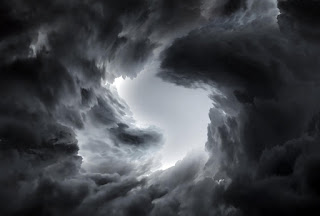“I am struggling, amid all the current political uproar, to keep clearly in mind that it is not merely because our policies are wrong that we are so destructive and violent. It goes deeper than that, and is more troubling. We are so little at peace with ourselves and our neighbors because we are not at peace with our place in the world, our land.”
~Wendell Berry
The magic of the greenhouse is underway. Sunlight, even on cold, wintry days, is transformed into heat inside those milky translucent walls. Seeds are transformed into stems. And from there the miracle continues. Eventually moved, when the time is right, and nestled into the land, the seedlings become plants that proceed according to their kind. For some, the mature growth dwarfs the sower. But there is one piece of alchemy the greenhouse never accomplishes. Regardless of how many zinnia seeds I sow, none of them will produce a tomato.
It follows a common agriculturally methodical reliability. Plants live to reproduce themselves, not something else. Creative, they are not imaginative. Lettuce from lettuce seed. Peppers from peppers. Scripture, in the voice of the Apostle Paul, underscores the principle flatly: “what you sow is what you reap.”
Ordinarily that schema points our attention forward: selecting seeds appropriate for the desired harvest. But beyond the garden, and more metaphorically speaking, perhaps it would be wise to spend some considered time looking back: given the harvest we are reaping, what was it that we sowed? At best we were careless, if not malignantly misguided.
Last week in Des Moines, a group of 14-17 year olds assassinated another 14 year old boy and seriously injured 2 young girls outside their high school. The prior week the governor of the state in which I live signed into law a punitive and life-sucking bill passed by the legislature targeting transgendered youth. A storm of other bills privileging individual autonomy at the expense of common good have straight-jacketed efforts to protect the public good, while others have elevated the placidity of ignorance over the pursuit and promulgation of truth whenever such veracity might cause discomfort. Truth, in particular, swings on the scaffold these days, to borrow James Russell Lowell’s hymnic allusion, as we more and more decide what we want to be so and simply call it truth, whether the topic be environmental degradation, species extinction, electoral integrity, the “threat” of immigration, or our various rationalizations for why black lives don’t really matter. Or brown. Or fill in the ethnic particularity of your choice. Churches are emptying and closing. Perhaps it is that fewer and fewer have any interest in matters of the holy and the movement of the Spirit, but might it be instead that those disinterested people simply aren’t impressed by the way they have seen it selectively, sometimes manipulatively, superficially and shamefully often abusively practiced?
What were the seeds we sowed that produced this toxic harvest? We could attempt to be honest about such matters, but it might discomfort someone and there is a law against that.
I’m intrigued by Berry’s observation that, “We are so little at peace with ourselves and our neighbors
because we are not at peace with our place in the world, our land.”
We have, in short, lost our footing, our root-securing grounding. And so unmoored to anything solid, and adrift in the ideological gases of partisanship, prejudice and willed self-deceit, we can’t help but collide with one another in the erratically capricious currents of gratuitous righteousness. And having thusly collided, our inevitable recourse is retributive blame-making rather than peacemaking. Having lost track of what makes us who we are – our origin, our being, the essential “is-ness” of our existence as persons – we drift like the fragile soap bubbles we have become.
And then “pop” at the least abrasion.
 In the prophetic legacy of the Hebrew prophet Hosea, there is a warning to those who “sow the wind.” They “reap the whirlwind.” From the context I hear Hosea using “wind” to describe a kind of vacuous pretense that displaces lives of authentic integrity and rootedness; ephemerality in the name of substance; hot air in the name of truth. “Throw enough of that out there,” the prophet seems to say, “and the nothingness of it all will ultimately dismember you – yourself and everything you touch.”
In the prophetic legacy of the Hebrew prophet Hosea, there is a warning to those who “sow the wind.” They “reap the whirlwind.” From the context I hear Hosea using “wind” to describe a kind of vacuous pretense that displaces lives of authentic integrity and rootedness; ephemerality in the name of substance; hot air in the name of truth. “Throw enough of that out there,” the prophet seems to say, “and the nothingness of it all will ultimately dismember you – yourself and everything you touch.”In the face, then, of just such a present cacophonous swirl, I ask myself again:
What were the airy seeds we sowed?
And how might we uproot them, and plant something better?